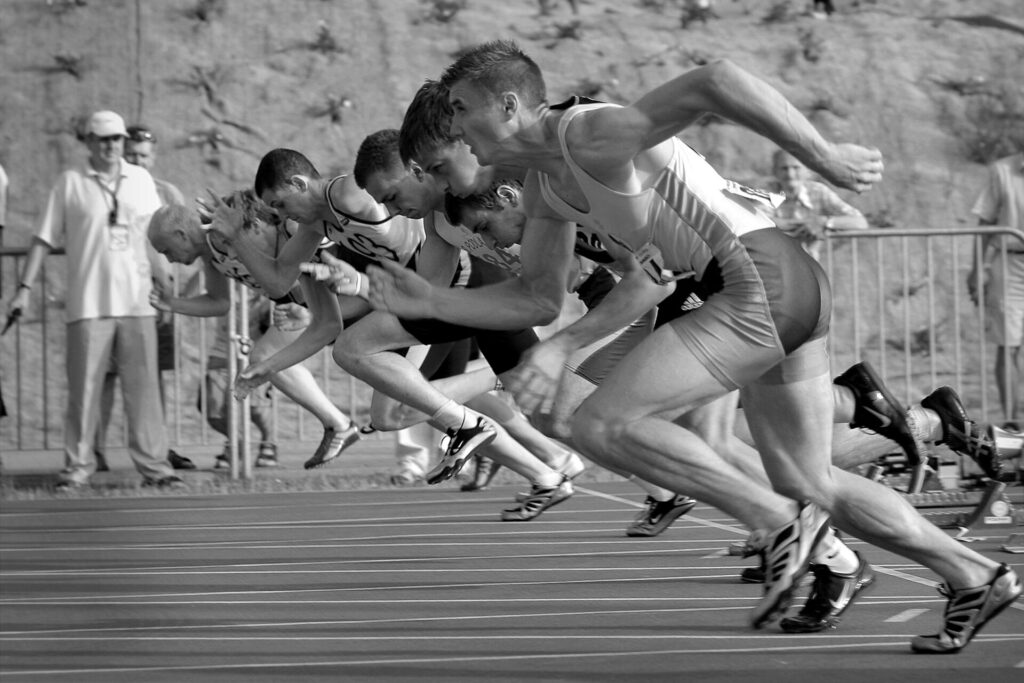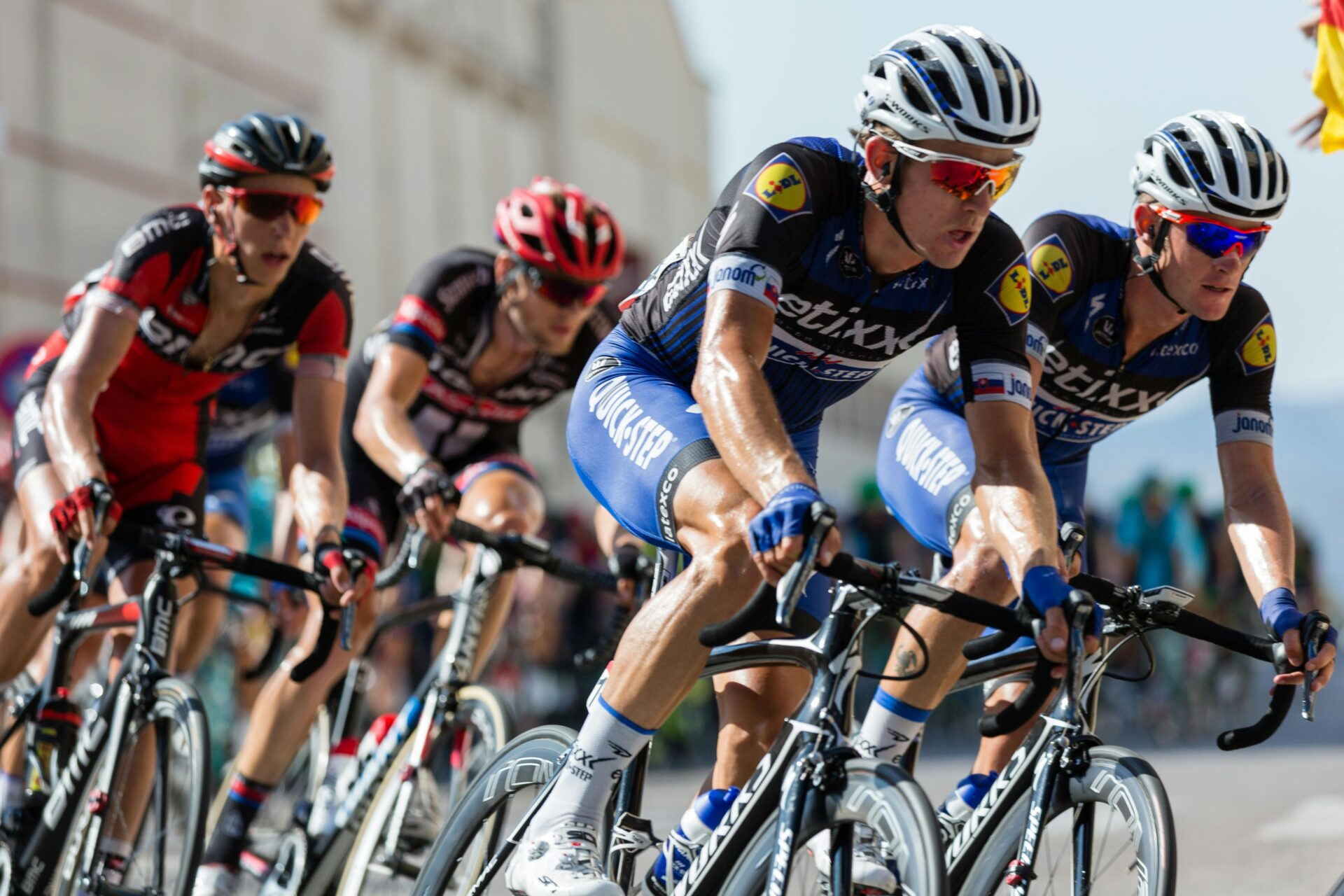In the competitive world of sports, talent and physical ability alone are not sufficient to achieve greatness. The mental game is equally, if not more, crucial. Developing a winning mindset is an essential aspect of an athlete’s success. This article delves into various psychological strategies and tips that athletes can employ to cultivate a mindset geared towards winning.
Understanding the Winning Mindset

A winning mindset is characterized by resilience, determination, confidence, and a relentless pursuit of excellence. It involves a mental state that fosters positive thinking, effective coping mechanisms for stress, and an unwavering focus on goals. Athletes with a winning mindset are often more consistent in their performance, better at overcoming setbacks, and more adept at maintaining their composure under pressure.
The Role of Goal Setting
One of the foundational elements of a winning mindset is setting clear, achievable goals. Goal setting provides direction and purpose, motivating athletes to push beyond their limits. Goals should be Specific, Measurable, Achievable, Relevant, and Time-bound (SMART).
For instance, rather than setting a vague goal like “improve my running time,” an athlete should aim for “reduce my 5K running time by 30 seconds within the next three months.” This specificity allows for better tracking of progress and provides a clear target to strive towards.
Visualization Techniques
Visualization is a powerful psychological tool that helps athletes enhance their performance. It involves creating a mental image of successful execution. By vividly imagining themselves performing well, athletes can boost their confidence and reduce anxiety. Visualization prepares the mind and body for the actual experience, making it feel familiar and less intimidating.
Athletes should practice visualization regularly, imagining not only the perfect execution but also potential challenges and how they will overcome them. This mental rehearsal can significantly improve focus and performance during competitions.
Positive Self-Talk
The language athletes use when talking to themselves can profoundly impact their mindset. Positive self-talk involves replacing negative thoughts with positive affirmations. For example, instead of thinking, “I can’t do this,” an athlete should tell themselves, “I am prepared and capable of overcoming this challenge.”
Consistent positive self-talk helps build self-confidence and resilience. It encourages athletes to view setbacks as opportunities for growth rather than failures. Developing a habit of positive self-talk can transform an athlete’s internal dialogue, leading to a more optimistic and winning mindset.
Managing Stress and Anxiety
Stress and anxiety are common in competitive sports, but managing these emotions is crucial for maintaining a winning mindset. Techniques such as deep breathing, progressive muscle relaxation, and mindfulness meditation can help athletes stay calm and focused.
Deep breathing exercises, for instance, involve taking slow, deep breaths to reduce physical tension and promote relaxation. Progressive muscle relaxation involves tensing and then slowly relaxing each muscle group, which can alleviate physical and mental stress. Mindfulness meditation, on the other hand, encourages athletes to stay present and focused on the moment, reducing anxiety about future events.
Developing Resilience
Resilience is the ability to bounce back from setbacks and continue pursuing goals with determination. It is a critical component of a winning mindset. Building resilience involves learning from failures, maintaining a positive outlook, and being adaptable.
Athletes can develop resilience by reframing failures as learning experiences. Instead of dwelling on mistakes, they should analyze what went wrong and how they can improve. This proactive approach fosters a growth mindset, where challenges are seen as opportunities to develop skills and enhance performance.
Building a Support System
A strong support system is invaluable for athletes striving to develop a winning mindset. Coaches, teammates, family, and friends can provide encouragement, feedback, and emotional support. Positive relationships contribute to an athlete’s overall well-being and mental health, which are essential for peak performance.
Athletes should seek out mentors and role models who exemplify the qualities they aspire to develop. Learning from others’ experiences and insights can provide valuable perspective and inspiration.
Consistency and Routine
Consistency in training and routines can help solidify a winning mindset. Establishing a structured schedule for practice, rest, and recovery ensures that athletes remain disciplined and focused. Routines help create a sense of normalcy and stability, which can be particularly beneficial in high-pressure situations.
Sticking to a routine also reinforces commitment to goals. It minimizes the likelihood of procrastination and helps athletes maintain a steady progression towards their objectives.
Embracing a Growth Mindset
A growth mindset, as opposed to a fixed mindset, is the belief that abilities and intelligence can be developed through dedication and hard work. This perspective encourages continuous improvement and a love for learning.
Psychology Tips for Athletes – Athletes with a growth mindset are more likely to embrace challenges, persist through difficulties, and see effort as a path to mastery. They are open to feedback and willing to adapt their strategies to achieve better results. Cultivating a growth mindset can transform an athlete’s approach to training and competition, fostering a relentless pursuit of excellence.
Developing a winning mindset is a multifaceted process that requires dedication, self-awareness, and the right psychological strategies. By setting clear goals, practicing visualization, engaging in positive self-talk, managing stress, building resilience, relying on a support system, maintaining consistency, and embracing a growth mindset, athletes can enhance their mental game and achieve greater success in their sports.
A winning mindset not only improves performance but also enriches an athlete’s overall experience, making the journey towards their goals more fulfilling and rewarding. With these psychological tips, athletes can cultivate the mental toughness and confidence needed to excel in their respective fields.








